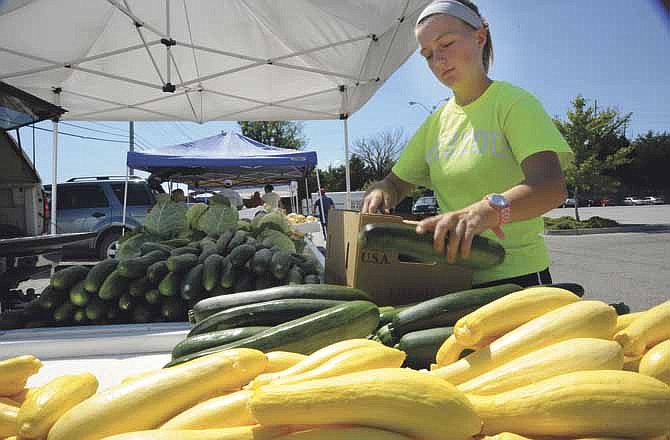The Missouri House gave initial approval last week to a bill that would address food deserts and give people better access to farmers' markets and fresh produce.
Sponsored by Rep. Martha Stevens, D-Columbia, House Bill 652 would expand the Missouri Senior Farmers' Market Nutrition Program to include "Women, Infants and Children."
Current Missouri law allows for low-income seniors to use "vouchers or other approved and acceptable methods of payment including, but not limited to, electronic cards that may be used to purchase eligible foods at farmers' markets."
According to Stevens, the bill would allow "low-income pregnant women, postpartum women and children up to the age of 5 years of age who are found to be at nutritional risk."
Stevens made sure to clarify that "this is voluntary." Farmers are not required to accept the vouchers that are currently being provided to low-income seniors and, if this bill passes, the vouchers from WIC recipients.
Numerous representatives discussed the bill and its amendments. The most vocal of those was freshman Rep. Kimberly-Ann Collins, D-St. Louis.
Collins offered an amendment to Stevens' bill that would "address food insecurity and food deserts in our neighborhoods and in our areas. This amendment offers tax credits to utilize vacant lots for farmers markets and urban agricultural practices. Also in this amendment, there is a tax credit for grocery stores to open."
Rep. Emily Weber, D-Kansas City, another freshman representative, offered an amendment to Collins' proposal to remove the tax credit for grocery store owners, an element of the proposal that drew Republican opposition. That provision wanted to offer a tax credit to "reestablish a full-service grocery store within three miles of a formerly operational grocery store that has been permanently closed and that is located within a food desert."
Weber's compromise was successful and the bill, with the amendments, won initial bipartisan approval.
Before discussion of HB 652, Collins tried unsuccessfully to add her amendment to Senate Bill 37.
Sponsored by Sen. Mike Bernskoetter, R-Jefferson City, SB 37 would "repeal provisions of law that give the Department of Agriculture oversight over standards relating to anhydrous ammonia."
One of SB 37's successfully implemented amendments included provisions that would "extend the pilot program allowing recipients to use SNAP funds at local farmers' markets," which was brought by Rep. Ian Mackey, D-St. Louis.
Mackey is a co-sponsor of Stevens' HB 652 along with Rep. Raychel Proudie, D-Ferguson.
The bill must be read on the House floor for a third time before it can makes its way to the Senate.
The work of the Missouri News Network is written by Missouri School of Journalism students and editors for publication by Missouri Press Association member newspapers.

